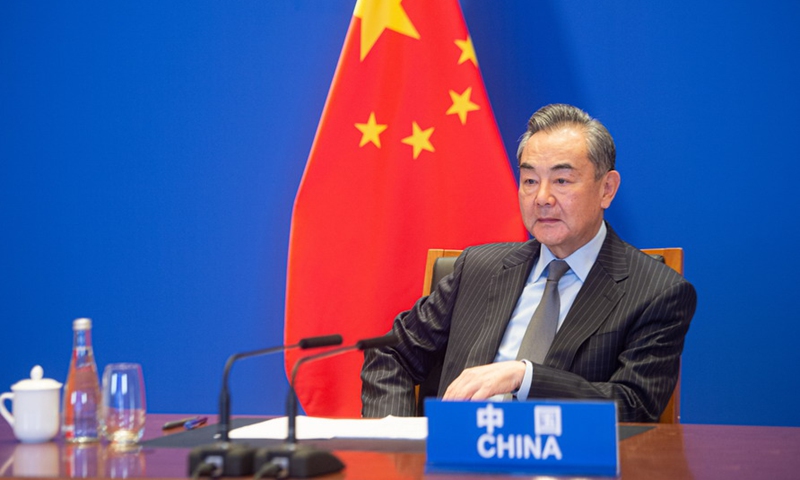
Wang Yi Photo:Ministry of Foreign Affairs
China firmly opposes external forces that instigate "color revolutions" in Central Asia, said Chinese State Councilor and Foreign Minister Wang Yi in an article published in the People's Daily on Thursday.
2022 will mark the 30th anniversary of diplomatic ties between China and Central Asian countries.
Facing the situation of changeable regional security, China has always insisted that universal security is true security, and the two sides have continuously established and improved security cooperation mechanisms and carried out in-depth law enforcement and security cooperation, Wang said.
We have also worked to communicate and collaborate to address the situation in Afghanistan and promote the process of national reconciliation and peaceful reconstruction in Afghanistan, Wang noted.
China and Central Asian countries have a long history of exchanges and friendship. In fact, since Zhang Qian, an envoy of the Western Han Dynasty (206BC-AD25) started his mission to the Western regions over 2,000 years ago, the people of China and Central Asia have been connected closely and cultivated a deep and lasting friendship.
Wang also mentioned the new breakthroughs made in practical cooperation between China and Central Asian countries.
In the past 30 years, China's trade with Central Asian countries has jumped from an initial few hundred million dollars to billions of dollars, a nearly 100-fold increase. That is, China's investment in Central Asian countries has grown from almost nothing to nearly 40 billion dollars.
China is one of the five central Asian countries'most important trading and investment partners. Meanwhile, the two sides have jointly implemented a series of strategic projects, including the China-Central Asia Gas Pipeline, the China-Kazakhstan oil pipeline, and the China-Kyrgyzstan-Uzbekistan highway.
Cooperation between China and Central Asian countries has entered a fast developing track, with many major projects in agriculture, water conservancy, power, textile, machinery and other sectors breaking ground since the Silk Road Economic Belt initiative was proposed in 2013.
The two sides will continue to work in close cooperation within multilateral mechanisms including the United Nations and Shanghai Cooperation Organization, and jointly practice multilateralism. In 2020, China and five Central Asian countries launched a foreign ministers' meeting mechanism to help achieve this.
As developing countries, it is our common goal to seek peace, development, and cooperation. We firmly oppose any unilateral or hegemonic act and support each other in safeguarding our core interests of independence, sovereignty and territorial integrity, Wang said, noting that China will safeguard international fairness and justice.
The two sides have learned from each other in the past 30 years, setting off a new wave of people-to-people exchanges, including exchanges of foreign students, joint archaeology, and translation of literary works.
Global Times




